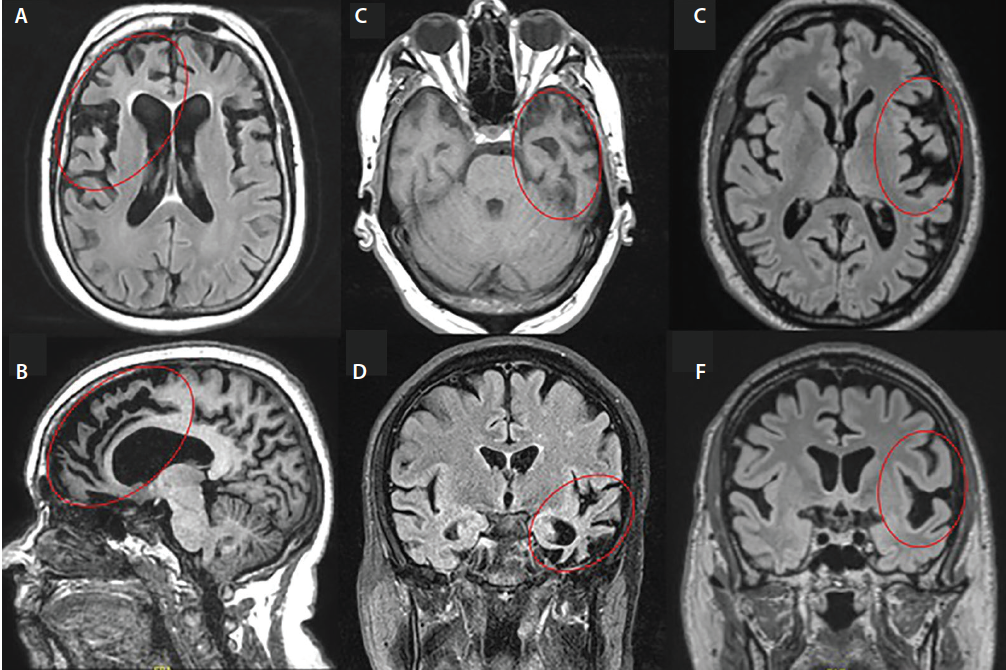How Does Frontotemporal Dementia Affect Mental Health

In most people FTLD affects either the frontal or the temporal lobes of the brain.
How does frontotemporal dementia affect mental health. Its several disorders that affect the frontal and temporal lobes of the brain. What is frontotemporal dementia. Frontotemporal dementia can affect how a person behaves and how well they are able to speak and understand language.
In addition to the above clinical symptoms the individual may also have problems with executive functions such as planning organizing sequencing and judgment. Such as frontotemporal disorders or Huntingtons disease. FTD often strikes people in the prime of their lives when theyre working and raising families.
Mental Health and Dementia New findings promote lifestyle modifications. The word frontotemporal refers to the two sets of lobes frontal and temporal in the brain that are damaged in this type of dementia. Frontotemporal lobar degeneration is a brain disease which generally affects the front parts of the brain the frontal and temporal lobes.
Symptoms Types and Diagnosis. Personality emotions behavior and speech are controlled in these. Some people with dementia also experience hallucinations that can lead to paranoia extreme anxiety and panic.
This causes the lobes to shrink. It is caused when the brain is damaged by disease. Frontotemporal dementia and how it affects the patients health Dementia is the decrease in mental capacity that is quicker than would be normal with typical maturing.
Dementia is the loss of cognitive functioningthinking remembering and reasoningand behavioral abilities to such an extent that it interferes with a persons daily life and activities. These functions include memory language skills visual perception problem solving self-management and the ability to focus and pay attention. These disorders are among the most common dementias that strike at younger ages.

Frontotemporal dementia FTD a common cause of dementia is a group of disorders that occur when nerve cells in the frontal and temporal lobes of the brain are lost.
How does frontotemporal dementia affect mental health. Frontotemporal dementia is an uncommon type of dementia that causes problems with behaviour and language. Dementia is the name for problems with mental abilities caused by gradual changes and damage in the brain. These functions include memory language skills visual perception problem solving self-management and the ability to focus and pay attention.
It is caused when the brain is damaged by disease. Dementia is the loss of cognitive functioningthinking remembering and reasoningand behavioral abilities to such an extent that it interferes with a persons daily life and activities. What is frontotemporal dementia.
Symptoms Types and Diagnosis. Its several disorders that affect the frontal and temporal lobes of the brain. Dementia influences ordinary exercises and gets logically worse.
Frontotemporal lobar degeneration is a brain disease which generally affects the front parts of the brain the frontal and temporal lobes. Activities that were easy before the illness began might take much longer or become impossible. The word frontotemporal refers to the two sets of lobes frontal and temporal in the brain that are damaged in this type of dementia.
If it affects mostly the frontal lobes this gives rise to the syndrome of frontotemporal dementia FTD associated with personality and behavioural change. Some people with dementia also experience hallucinations that can lead to paranoia extreme anxiety and panic. Changes in the mental health of the person with dementia can be very difficult for carers who need to make sure they ask for help from an understanding family member a friend a professional or a support group.
FTD often strikes people in the prime of their lives when theyre working and raising families. Mental Health and Dementia New findings promote lifestyle modifications. Dementia describes a group of symptoms that can include problems with memory thinking or language and changes in mood emotions and behaviour.

It is caused when the brain is damaged by disease.
How does frontotemporal dementia affect mental health. Such as frontotemporal disorders or Huntingtons disease. Dementia describes a group of symptoms that can include problems with memory thinking or language and changes in mood emotions and behaviour. This causes the lobes to shrink.
In addition to the above clinical symptoms the individual may also have problems with executive functions such as planning organizing sequencing and judgment. Frontotemporal dementia can affect how a person behaves and how well they are able to speak and understand language. FTD often strikes people in the prime of their lives when theyre working and raising families.
These functions include memory language skills visual perception problem solving self-management and the ability to focus and pay attention. Frontotemporal dementia and how it affects the patients health Dementia is the decrease in mental capacity that is quicker than would be normal with typical maturing. Mental well-being and depression in dementia Mental well-being and depression in dementia Mental health and wellbeing is as important as physical health and wellbeing for people living with dementia.
Its several disorders that affect the frontal and temporal lobes of the brain. Activities that were easy before the illness began might take much longer or become impossible. Frontotemporal dementia primarily influences the frontal and worldly flaps of the mind.
If it affects mostly the frontal lobes this gives rise to the syndrome of frontotemporal dementia FTD associated with personality and behavioural change. The word frontotemporal refers to the two sets of lobes frontal and temporal in the brain that are damaged in this type of dementia. Dementia is the loss of cognitive functioningthinking remembering and reasoningand behavioral abilities to such an extent that it interferes with a persons daily life and activities.
Memory loss and dementia. What is frontotemporal dementia. It is a rarer type of dementia which is a term used to describe a set of symptoms including problems with memory and thinking.








